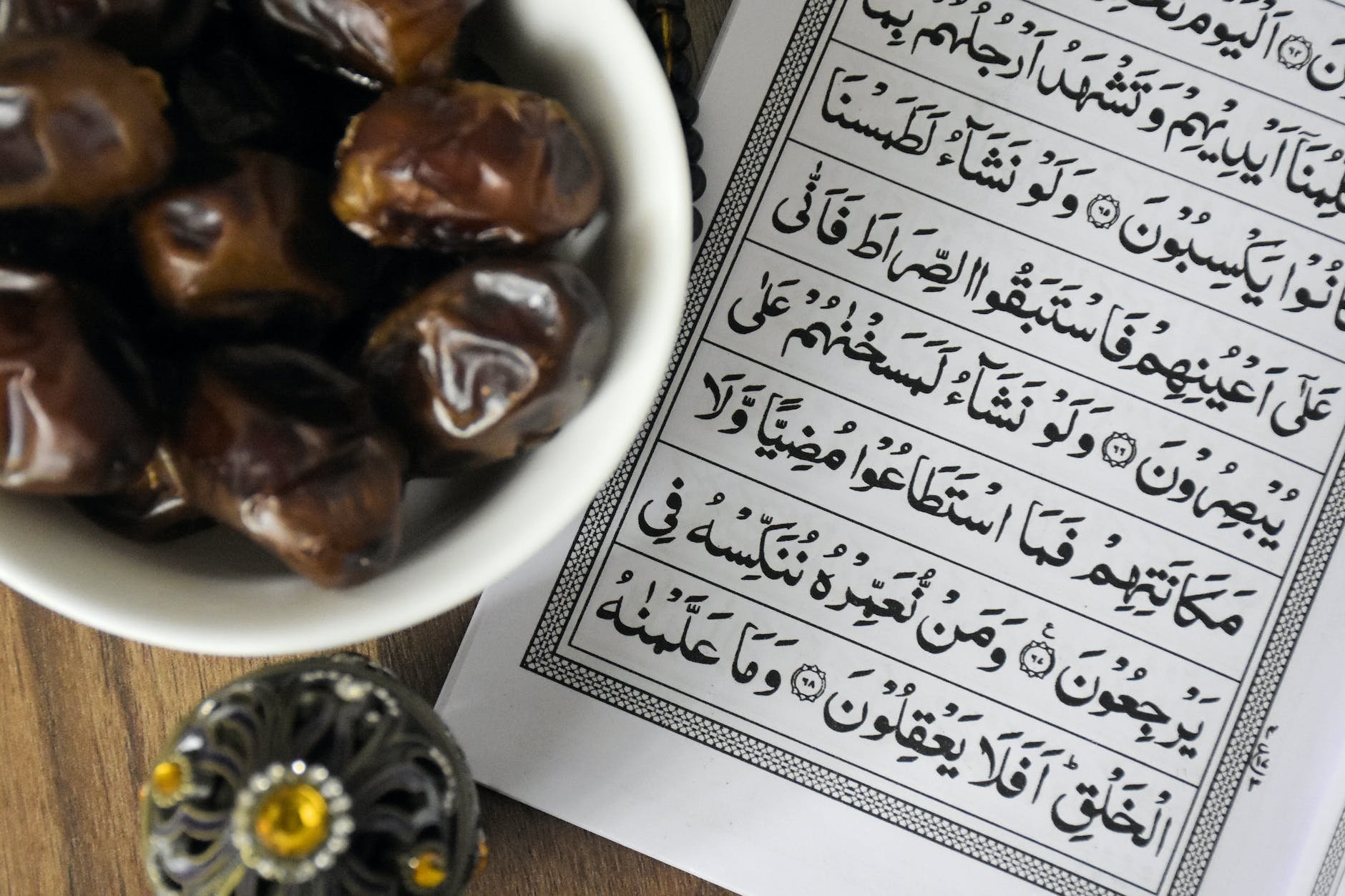10 Ways to Prepare Yourself for Ramadan 2023
As the holy month of Ramadan approaches, Muslims around the world prepare themselves for a month of spiritual growth, reflection, and worship. To make the most of this special time, it's important to take practical steps to prepare yourself physically, mentally, and spiritually. From adjusting your eating habits to scheduling your daily routine, there are many ways to get ready for Ramadan.
1. Prepare yourself mentally and emotionally
Begin by setting a clear intention for why you want to observe Ramadan. Your intention should be to seek the pleasure of Allah and to use this month as an opportunity to increase your worship, improve your character, and seek forgiveness for your sins.
Take some time to reflect on the significance of Ramadan and the blessings that come with it. Ramadan is a month of forgiveness, mercy, and spiritual growth. It is an opportunity to strengthen your relationship with Allah and to renew your commitment to living a life of faith. Ramadan can be a physically and emotionally demanding month, so it's important to prepare yourself.
2. Increase your acts of worship
Ramadan is a blessed month in Islam, and it is a time when Muslims are encouraged to increase their acts of worship and spiritual devotion. In the weeks leading up to Ramadan, prioritise good deeds such as reading the Quran, performing voluntary prayers, giving to charity or attending Islamic classes and lectures. By increasing your acts of worship in the weeks leading up to Ramadan, you can help to prepare your heart and mind for the month of fasting, and to make the most of this blessed time.
For example, in addition to the five daily prayers, there are many voluntary prayers (such as the sunnah prayers) that can be performed throughout the day. These prayers are not obligatory, but they are highly recommended and can help you to increase your acts of worship in the weeks leading up to Ramadan. You can start by adding one or two voluntary prayers to your daily routine, and gradually increase the number of prayers as you get closer to Ramadan.
3. Adjust your eating habits
Adjusting your eating habits gradually in the weeks leading up to Ramadan can help you to prepare your body for the change in routine that comes with fasting. One way to do this is to start by eating smaller portions and consuming foods that are more nutritious and filling. This can help to train your body to be satisfied with less food and to make the most of the nutrients you consume. You can also gradually reduce your intake of sugary or fatty foods, and increase your consumption of fruits, vegetables, and whole grains.
Additionally, it can be helpful to establish a regular eating schedule, with three meals a day and healthy snacks in between, to ensure that your body is getting the nourishment it needs. By adjusting your eating habits gradually and focusing on nutritious, filling foods, you can help to prepare your body for the month of fasting and ensure that you have the energy and stamina to make the most of this blessed time.
4. Practice patience and kindness
Ramadan is not just about abstaining from food and drink during the daylight hours, but also about cultivating virtues such as patience, kindness, and generosity. To prepare for Ramadan, you can start practicing these virtues in your daily life. For example, you can practice patience by being more tolerant of others and not getting angry or upset easily. You can practice kindness by helping others in need, showing empathy and understanding, and being polite and courteous in your interactions with others. And you can practice generosity by giving to charity, volunteering your time and resources, and being willing to share with others.
By cultivating these virtues in your daily life, you can develop the habits and attitudes that will help you to make the most of Ramadan. You will be better prepared to handle the challenges that come with fasting, such as hunger, thirst, and fatigue, and you will be more focused on the spiritual aspects of the month. Additionally, you will be more likely to experience the benefits of Ramadan, such as increased spirituality, a closer connection to Allah, and a greater sense of community with other Muslims.
5. Plan your schedule in advance
It is really important that you make an effort to minimize any unnecessary distractions or activities that might hinder you from making the most of Ramadan and achieve your spiritual goals.
To start, make a list of the activities that you need to do each day, such as work, school, household chores, and other responsibilities. Then, identify the activities that are most important to you in terms of your spiritual goals, such as reading the Quran, performing extra prayers, or attending religious lectures or classes. Once you have identified these activities, create a daily schedule that allows you to prioritize them, and stick with it.
You should also be aware of the iftar and prayer times, and schedule your meetings or engagements away from these timings. That way, you will get to break your fast in peace and not miss a single prayer, Insha'Allah.
6. Plan your meals in advance
Every Ramadan, my friend manages to balance her family, career, personal life, and kitchen with ease, thanks to a simple yet effective tool: her personal Ramadan Meal Calendar. By planning out her family's sahur and iftar meals in advance, she saves time and eliminates the daily struggle of figuring out what to cook for break fast.
Planning your meals and grocery shopping in advance can help you to minimize food waste, ensure that you have enough nutritious meals to break your fast, and reduce the stress of meal planning during Ramadan. You can start by making a list of the foods you will need for your meals during Ramadan, including foods that are high in nutrients and provide sustained energy, such as fruits, vegetables, whole grains, and lean proteins.
By planning your meals and grocery shopping in advance, you can reduce food waste, save money, and ensure that you are well-nourished during the month of fasting. With a little bit of organization and preparation, anyone can adopt this approach and simplify their Ramadan routine.
7. Use technology to help you make the most of ramadan
In this day and age, technology has made it easier than ever for everyone to go about their daily life so let's make full use of that during Ramadan. For example, there are various apps available that can help you keep track of your fasts, plan your prayers, and access Islamic resources. The Muslim Pro app is one of the most popular and comprehensive Islamic apps available that provides a range of features to support daily worship and spiritual development, especially during Ramadan.
The app includes a fasting tracker, prayer times, digital tasbih, Quran with audio recitation and translations, duas, a zakat calculator and even a Muslim streaming service called Qalbox that is built into the app as well. With these features, the app can help you stay on track and make the most of this blessed month through their useful resources and Muslim-friendly shows.
Additionally, social media can also be a useful tool to connect with other Muslims and stay updated on Islamic events and resources. You can follow Islamic scholars, organizations, and influencers on social media platforms to access their content and learn from their insights. Moreover, technology can also help us in charitable giving during Ramadan. Many Islamic organizations and charities have online portals or apps that make it easy to donate and support their causes. With just a few clicks, you can donate to causes like feeding the hungry, providing clean water, and supporting education for children in need.
8. Learn more about islam
Even though I was born a Muslim, it is still a learning journey until today. Attending lectures or classes on Islamic topics have really helped me to deepen my knowledge and understanding of the faith, and I am thankful for all of the resources that are readily available now.
To start with, check with your local mosque! There might be offerings available or a Muslim community near you that could provide you with the tools and resources you need to make the most of Ramadan. Alternatively, there are also lots of resources available online from various Muslim blogs or publications, where you might attend virtual classes on Quranic studies, Islamic history and culture, or specific aspects of the faith that you are interested in learning more about.
By attending these classes and lectures, whether physically or virtually, you can gain a deeper appreciation for the spiritual significance of Ramadan, and connect with other members of the Muslim community who share your interests and values.
9. Set personal goals for the month
With so many things going on in one's life, it can be easy to get distracted. However, setting personal goals for the month of Ramadan can help you to focus your energy and attention on achieving specific spiritual objectives. This might include setting goals for reading a certain amount of Quran each day, giving a specific amount in charity, or volunteering in your community to help those in need.
I will highly recommend you to get yourself an accountability buddy to help keep you on track. This could be your spouse, best friend, family member or anyone that you trust. Share the goals that you've set for yourself and make a pact into taking concrete steps towards personal growth and development together.
10. Make an effort to forgive and seek forgiveness
One of the fundamental principles of Ramadan is forgiveness, and it can greatly enhance your spiritual connection with Allah while building stronger relationships. To prepare for Ramadan, it is important to make a conscious effort to forgive those who have wronged you and seek forgiveness from those whom you may have wronged. This may require reaching out to friends or family members to apologize for past misunderstandings or mistakes, or it may involve letting go of any grudges or negative feelings that you have been holding onto. Prioritizing forgiveness in your life can help you cultivate a more peaceful and compassionate mindset, allowing you to approach Ramadan with a greater sense of spiritual openness.
Preparing for Ramadan requires effort and commitment, but the rewards are immeasurable. By taking practical steps, such as increasing acts of worship, practicing patience and kindness, and setting personal goals, you can make the most of this blessed month. With these tips, you can prepare yourself physically, mentally, and spiritually for Ramadan, and approach the month with a sense of purpose and spiritual openness.






